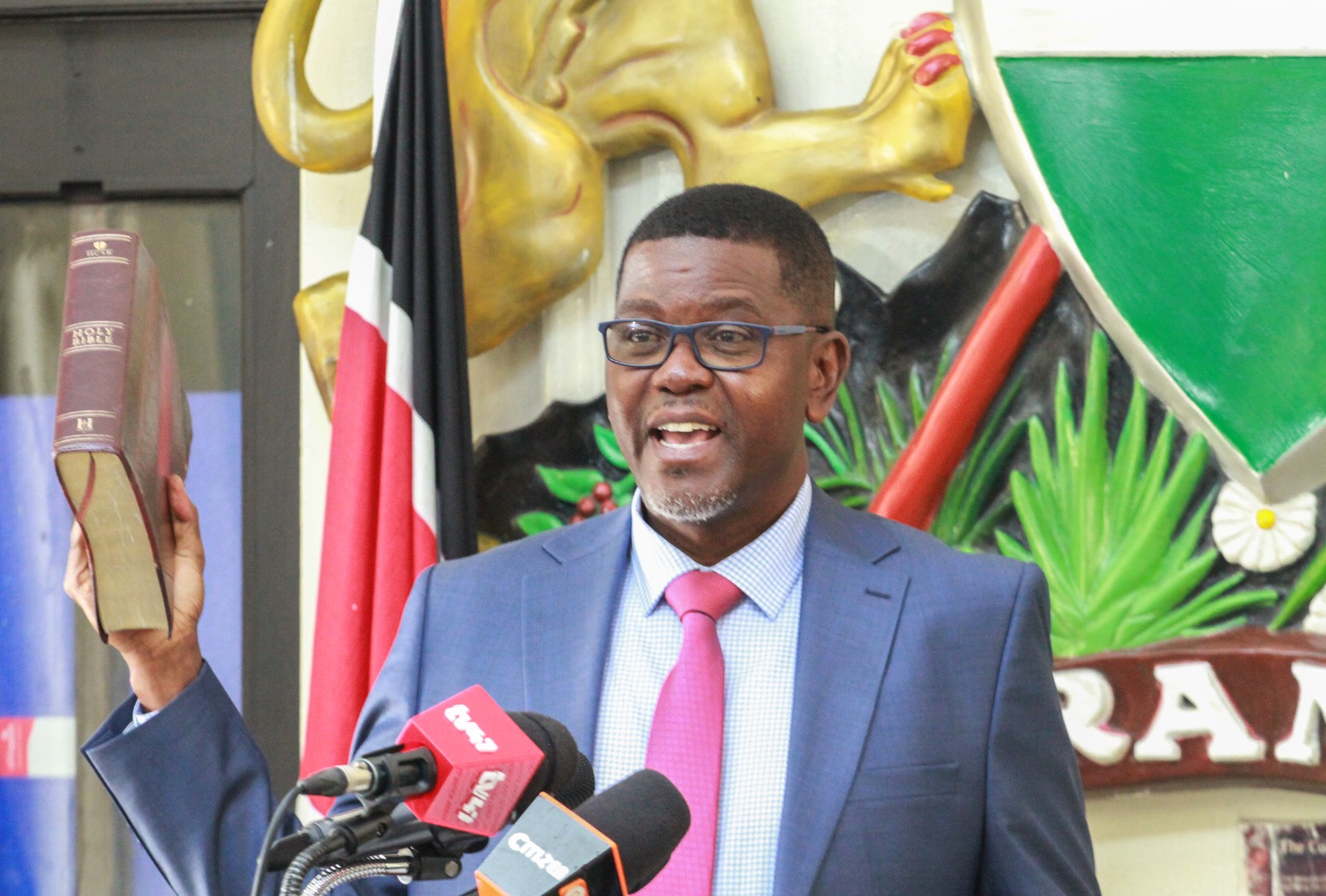
 Newly appointed chairperson of the National Police Service Commission (NPSC) Dr. Amani Yuda Komora during his swearing-in ceremony/ENOS TECHE
Newly appointed chairperson of the National Police Service Commission (NPSC) Dr. Amani Yuda Komora during his swearing-in ceremony/ENOS TECHENewly appointed Chairperson of the National Police Service Commission (NPSC), Dr. Amani Yuda Komora, has officially taken office with a pledge to champion professionalism, integrity, and transformative reforms within Kenya’s police service.
Speaking during his swearing-in ceremony on Thursday, Komora vowed to serve with diligence and fidelity to the Constitution, and to work collaboratively with stakeholders to build a citizen-focused, trusted, and professional police service.
“I assume this office with full awareness of the heavy responsibility it carries,” Komora said. “The men and women in uniform who look to this Commission for leadership, as well as the millions of Kenyans who deserve effective and trusted policing services, have legitimate and high expectations.”
Komora emphasised that his first priority will be to restore harmony, collegiality, and teamwork within the Commission and across institutions that support its mandate.
“We will build a cohesive and unified NPSC, taking into account that divisions would undermine our ability to achieve our mandates. Unity of purpose will be our focus,” he said.
The chairperson also outlined his vision for the transformation of the National Police Service—from what he termed a “militaristic force” to a “citizen-focused service.”
“This is not just a name change—it’s a cultural and institutional shift. The Kenyan public must begin to see the police not as enforcers, but as partners in community safety and development,” he added.
In line with the government’s Bottom-up Economic Transformation Agenda (BETA), Komora announced plans to recruit 25,000 new police officers by 2027, with an initial 10,000 recruits set to be hired in the current Financial Year.
“We are significantly understaffed when compared to our population. Improving the police-to-civilian ratio is essential not just for public safety but also for reducing officer burnout and improving service delivery,” he said.
The recruitment exercise will be undertaken in close collaboration with the Inspector General of Police and will prioritize fairness, regional balance, and meritocracy, according to Komora.
Addressing one of the most persistent concerns about the police service—corruption—Komora issued a stern warning and laid out a plan to address malpractices decisively and transparently.
“The Commission will partner with the Ethics and Anti-Corruption Commission (EACC) and other agencies to identify and seal institutional loopholes that facilitate corruption,” he said.
He acknowledged that public confidence in the police remains fragile, and promised that his leadership will focus on building accountability mechanisms and disciplinary systems to deal with rogue officers.













